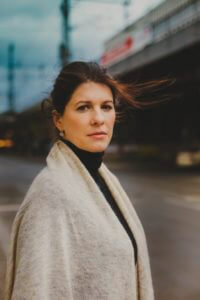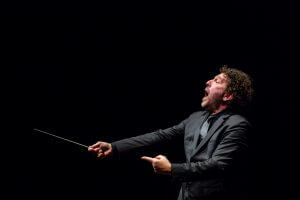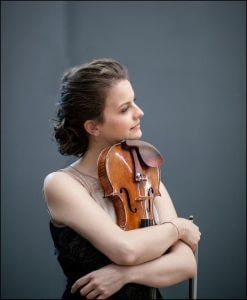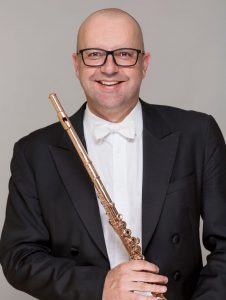Perth Concert Hall
reviewed by Neville Cohn
Did you know that Grieg’s opus was the very first piano concerto ever recorded? It happened more than a century ago – as far back as 1909. The soloist was a very young Wilhelm Backhaus. It’s a compressed version of the work – a mere nine minutes – but it is beautifully played. Listen to it on Youtube. And Andrey Gugnin’s offering at the weekend was no less meaningful, not least for its blissful clarity and range of tone colourings.
An audience that packed the Concert Hall to capacity – it was standing room only – listened to the concerto in its entirety featuring a soloist with the world at his feet. And in his hands, Grieg’s masterpiece flashed into pulsing life. The clarity which this young Russian-born musician brought to the solo part could hardly have been bettered. And the range of tone he coaxed from the Concert Hall’s Steinway – from whispered pianissimi to thunderous blocks of sound hurled into the auditorium like some pianistic Zeus – made for most satisfying listening. The first two movements were beyond reproach, in the best sense meaningful. It was only fleetingly in the finale, though, that one felt that more emphatically stated rhythms were required. At times, it was too lyrical here.
Throughout, Asher Fisch took the WASO players through a first rate accompaniment. I particularly liked the introduction to the central Adagio during which Fisch coaxed an exquisitely hushed response from a much-in-form strings section.
A veritable tidal wave of applause and cheers greeted the conclusion of the concerto, its insistence persuading Gugnin to offer an encore. With house lights dimmed and the soloist in a pale pink spotlight, we listened to a relentlessly virtuosic account of the toccata-like finale to Prokofiev’s Sonata No 7. Yet again, the audience erupted into enthusiastic applause.
As curtainraiser, we were offered the world premiere of young Perth composer Lachlan Skipworth’s Hinterland, a work inspired, inter alia, by Western Australia’s rock formations. Homeland incorporates a swarm of ideas, too many too assimilate on a single hearing. I hope we can listen to it again soon. Its final notes were followed by sustained and vigorous applause. I was indeed able to listen to it again – on ABC FM a few days later – and how much more meaningfully the work came across second time around. Skipworth has real skill, producing, through clever orchestration, variants of tone colour that fell most pleasingly on the ear. On second hearing, though, it sounded a shade too long for its material. Some judicious pruning might well enhance the overall impact of a work full of good ideas.
Also on the program was that much loved symphony – Dvorak’s From the New World. Asch’s focussed direction did wonders not least his skill in injecting enthusiasm into his forces but without ever allowing this to degenerate into mere showiness.

 I have been attending – and reviewing – WASO concerts for more than 35 years.
I have been attending – and reviewing – WASO concerts for more than 35 years.


